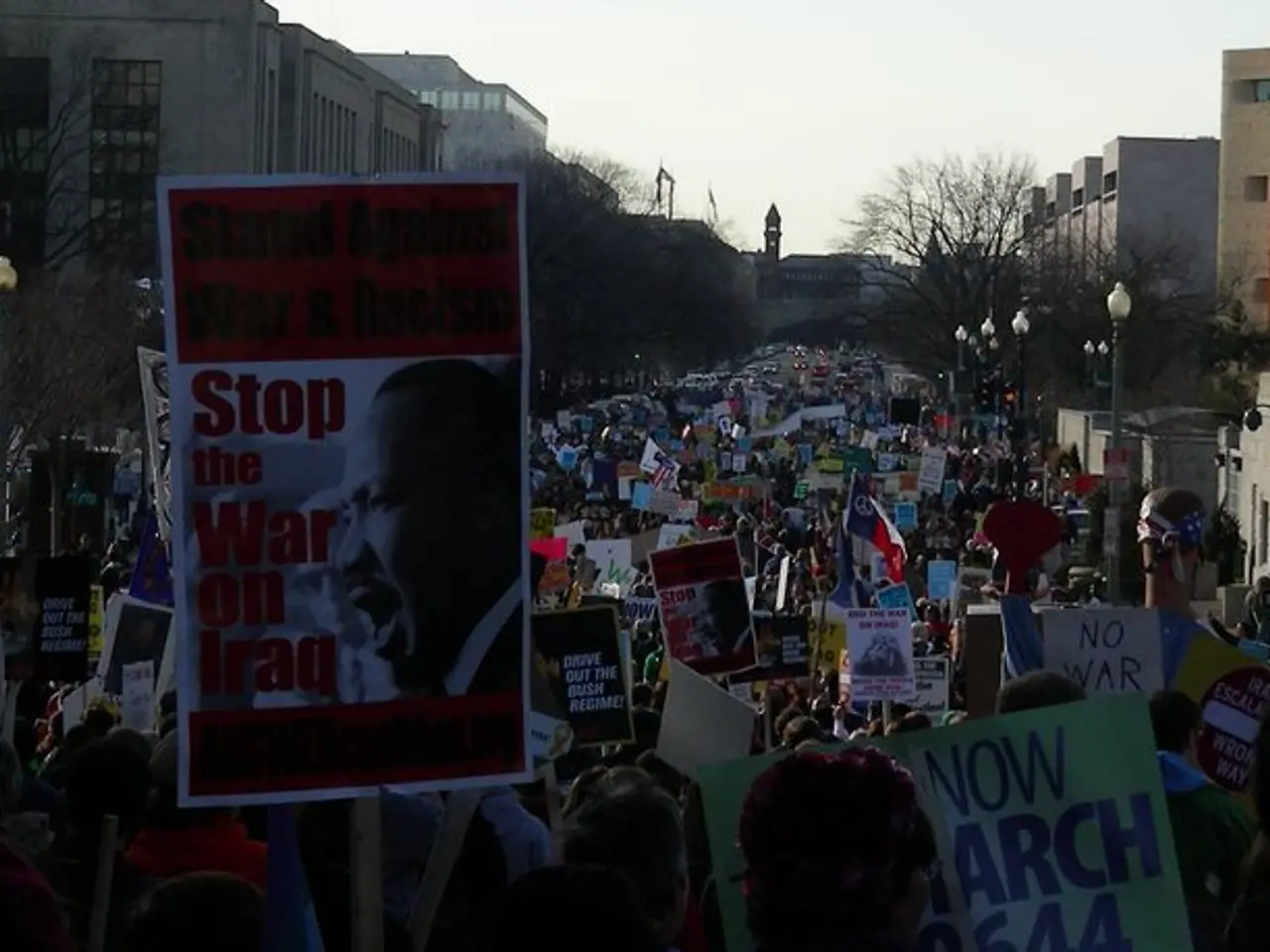Opposition leaders held a rare demonstration over electoral wrongdoing, with Rahul Gandhi speaking out about their detainment
The ongoing controversy in Indian politics centres around Congress leader Rahul Gandhi's allegations of systematic electoral malpractice during the 2024 Indian general election. Specifically, he has accused the Election Commission of India (ECI) and the ruling BJP of manipulating and irregularities in voter lists, including the inclusion of fake, duplicate, and ineligible voters.
Rahul Gandhi presented these charges with detailed claims regarding the Mahadevapura Assembly constituency in Karnataka and Bihar’s electoral rolls, emphasizing grave concerns about the upcoming Bihar elections. The opposition parties, especially the INDIA alliance led by Congress, have supported his allegations and accused the ECI of being biased in favour of the BJP, asserting that roll revisions were designed to suppress opposition votes ahead of the high-stakes Bihar polls.
The ECI has strongly rejected these claims, demanding Rahul Gandhi substantiate them via a signed declaration under oath, as per election rules. Notices have been sent to him by various Chief Electoral Officers seeking documentary evidence, but he has not fully complied. The commission labelled the claims as baseless in the absence of formal proof and criticized the allegations as attempts to undermine the integrity of constitutional election bodies.
The BJP has dismissed Rahul Gandhi's charges as politically motivated and lacking legal foundation, accusing him of political theatre aimed at tarnishing the Election Commission’s image. They highlight that no formal complaints have been lodged by Congress or opposition cadres to support the vote fraud claims. Meanwhile, some opposition voices like CPI have backed Rahul Gandhi’s stance, calling for greater scrutiny of the ECI.
The controversy has intensified political polarization, profoundly impacting the political landscape especially in Bihar. The debate over voter roll manipulations and electoral fairness has become a major campaign issue, influencing public trust in election processes and raising concerns about democratic backsliding under BJP rule. The opposition campaigns against alleged "vote theft" have added pressure on the ECI and amplified calls for transparent voter list management ahead of the Bihar assembly elections.
In summary, the opposition accused the government, the Election Commission, and the BJP of undermining democracy through voter list tampering. Rahul Gandhi led a high-decibel protest against alleged electoral malpractice in New Delhi, displaying political unity among opposition leaders. The BJP, in response, accused the opposition of creating instability and an orchestrated smear campaign. The protest came at a delicate political moment, with state elections in Bihar just months away. The opposition outrage intensified after the Election Commission decided to revise voter rolls in Bihar before upcoming elections, with critics arguing that selective timing of such revisions ahead of crucial polls opens the door to political misuse. The protest was marked by barricade breaches, slogan chanting, and police detentions.
The lack of granular, real-time public verification tools remains a concern for transparency advocates. Rahul Gandhi declared the fight was "to save the constitution" rather than secure partisan advantage. The opposition is expected to push for an independent audit of voter rolls and greater public participation in verification processes. The Representation of the People Act, 1950 empowers the Election Commission to periodically update electoral rolls. If the opposition sustains pressure on the issue, it could force institutional reforms such as mandatory third-party audits of voter lists and EVM processes.
The Election Commission defended revisions to voter lists as routine and necessary for accuracy. Over 1.4 crore names were added and 86 lakh names deleted from electoral rolls nationwide as part of regular updates in 2024-25. The coming months will test whether India's democratic institutions can weather heightened partisanship without eroding public trust. Rahul Gandhi's prominence in the debate about electoral malpractice reflects growing concern about democratic processes. The Election Commission's handling of scrutiny could shape public perception in the upcoming Bihar elections. The opposition strategy to erode the moral high ground claimed by the BJP in governance and electoral fairness is evolving. Critics say the timing of the Bihar revision decision could strip voting rights from poorer communities.
Read also:
- Weekly happenings in the German Federal Parliament (Bundestag)
- Southwest region's most popular posts, accompanied by an inquiry:
- Discussion between Putin and Trump in Alaska could potentially overshadow Ukraine's concerns
- Massive 8.8 earthquake hits off the coast of Russia's Kamchatka Peninsula, prompting Japan to issue a tsunami alert.








